- Home
- Karen Marie Moning
Feversong: A Fever Novel Page 11
Feversong: A Fever Novel Read online
Page 11
MAC
Here, drifting in nothing, my thoughts sparkle like diamonds, translucently clear.
Perhaps it’s because I have no physical distractions. Perhaps it’s because, for the first time since I was a fetus, I’m completely alone, free from the ever-present influence and malevolent manipulation of the Sinsar Dubh.
Out there, beyond my box, in the world, the Book is walking around, controlling my body, doing God knows what with it (I refuse to indulge that train of thought, I can’t do anything to stop it, and the horrific things I might imagine would only dilute my clarity), but once it was trapped. For twenty-three years.
I simply have to replicate its path to freedom.
But first I have to figure out what it did; what I did, that enabled it to take control of my body away from me. Barrons says possession is nine-tenths of the law. So what did I do that allowed the Book to exploit its one-tenth possibility?
I understand how it got me the day I killed the Gray Woman but I don’t understand how it evicted me this time.
Something about the moment I used one of its spells gave it the ability to overpower me, but what?
I turn my thoughts back to the instant it gained control and sift through my motives. Unlike that gloomy day I’d killed the Gray Woman, I hadn’t been trying to make myself feel better, nor had I been seeking to improve my life.
At the moment I reached for the spell, all I’d been thinking of was Dani, that I wanted her to live out loud and in every color of the rainbow, unchanged, unaltered by a dispassionate entity that believed itself so superior that it could re-create her according to its own design—and who the hell was it to judge? I’d been thinking that I’d do anything to see her happy, hear her belly-laugh again, snicker, crack herself up, maybe fall in love and—who knows, if Shazam was really real, she’d save him and they’d swagger around Dublin, doing superhero things together. I’d even gone so far as to imagine her having children of her own someday, thinking how brilliant and amazing they’d be and what a terrific mother she’d make. I’d wanted her to get up off that fucking table, unchanged, unharmed. She’d already been through so much in her life.
My motives had been pure, as altruistic as I believed possible. I hadn’t been thinking about myself at all. I’d made the decision with a strangely detached calm, a serene “Fine, take me, just let her live.” I refuse to believe doing something out of pure love makes us weaker.
Then how had such good intentions landed me here?
I consider the question from every angle, finally able to draw a single conclusion: They hadn’t.
There was something else, some other nuance that tipped the scales in favor of the Sinsar Dubh.
I peel myself like an onion, seeking the pearly core, determined to isolate precisely what had been in my mind at the moment I’d made the decision to open the Book. I shuck vanity, pride, ego, lay my heart bare and study it.
At the moment I’d opened the Book—as if it was something that could even be opened or closed or anything that implied corporeality—I’d been thinking that I believed in good magic, that even if the Book’s power stemmed from an evil source, I could use it for the right reasons, without price.
Wait. Not exactly.
There was something deeper, beneath that thought.
Oh, God, I’d still been afraid.
I’d been saying I believed in the good magic but in my heart lurked the insidious fear that I would lose control again like I had the day I killed the Gray Woman. Only things would go much worse this time.
Hope builds a stairway to Heaven. Fear opens an abyss to Hell. We stand in front of those two possible apertures at all times; choose which one to go through.
Was it possible the only thing that had given the Book control over me in that moment—was me?
I’m stupefied by my next thought: What if the war between us has always been nothing more than a battle of will? And it knows it. I’m the only one that doesn’t. That would give it one hell of an advantage over me; all the advantage it needed. The corporeal Sinsar Dubh had trafficked in guile and sleight of hand. My internal one would be no different. Since the moment I learned of the Book, I’d heard nothing but tales of how all-powerful it was, how its will was impossible to resist, and damn it all, I’d believed it. Despite Barrons trying to make me see that the legend of a thing was often far greater than the thing.
Picture this: Two people are in a room. One’s a sociopath, one’s not. Who has the advantage?
The sociopath. Because it knows it’s a sociopath. The empath doesn’t. The empath thinks they’re playing by the same rules. They aren’t. They aren’t even playing the same game.
There are no rules with a sociopath. There’s only—
DESIRE, LUST, GREED, AND THE PATH WE CHOOSE TO SUPREMACY.
The words explode in the vacuum around me, stunning me.
I crane my awareness, as if I might turn this way and that, peering into darkness I can’t see with eyes I don’t have.
I just heard the Sinsar Dubh!
Because I’m finally starting to see through its games? Because this motherfucking empath knows it’s standing in a room with a psychopath? Ah, suddenly we’re playing the same game.
Now we both have no rules. I cast aside all my preconceptions, everything I thought and believed about the Sinsar Dubh, and begin at ground zero. What is the Book really? How much control over me does it really have?
I realize, much to my surprise, that it’s oddly fascinating being nothing but a consciousness. It’s strangely…freeing. Not that I’d choose to stay in this state, but it’s much easier to focus my thoughts. I feel no pain. Nothing hurts or itches or is getting stiff from sitting in one position too long. I’m not worried about how my hair or nails look because I don’t have any. I’m not hungry. I don’t need to go to the bath—
Oh, God, but it does now!
The mouth I don’t have wants to laugh. I wonder how that’s going for it, as it tries to acclimate to the demands of my body with no instruction manual. It suffers limits it never used to have. Like the Unseelie, newly released from their prison, it must be ruled by endless, stupefying hunger—only unlike them, it now has a body it has no experience in caring for, and will make mistakes.
Good. I hope it’s struggling.
Not too much, I amend hastily, because I’d really like my body back in one piece. I hope it flounders just enough to fuck it up royally.
My copy of the Sinsar Dubh has never been corporeal except for a few murderous hours, and now it needs to pee, and eat, and wash (I hope), and do all those other taxing, distracting things humans have to do on a daily basis.
It occurs to me that these early hours, or days or whatever is passing, are when it’s going to be at its weakest, while it adjusts. I hope Barrons figures that out.
A coldly analytical sentience studied me my whole life, probing for weaknesses.
Two can play that game.
SOMETHING’S HAPPENING TO ME! WHAT IS IT?
The Book’s panicked thought echoes like thunder off mountains, thrilling me. I expand my awareness, reaching out, pressing at the indefinable limit of walls I feel somewhere around me. Why are we bleeding into each other? Is it playing a game with me? Trying to trick me, lull me into some other mistake? Are there any more mistakes I can even make? Or is it weakening for real?
I’m not alone. It’s in here, too. In me. We’re both in me. A barrier separates us but a barrier can be breached.
I will hunt it.
I will find it. Study it. Identify its cracks and flaws and weaknesses that can be exploited. I dredge up the information I learned in my abnormal psych course—surprisingly easy in here with no distractions—and reflect upon the characteristics of borderline personalities. This isn’t a battle of magic, it’s a battle of “frame”—that construct of reality we adopt as our own, what we believe about ourselves and our relation to the world. I have to change the Book’s frame the way it changed mine, chipping away at
it, recasting it so it loses control. But first I have to get to it.
I WILL NOT LOSE CONTROL OF THIS VESSEL AGAIN!
I’d smile if I had a face. Yes. That’s it. You will. You will lose and I will win.
Something is happening to the Book, changing its circumstances, and whatever it is threatens its ability to hold my body. Is it me? Is my growing understanding weakening its hold? I expand my awareness and get slammed by a wave of bone-deep exhaustion. It’s the first sensation I’ve felt since the Book turned me into a Mac-in-the-box. Is something cranking my handle?
Oh, God, I know what’s happening! It needs to sleep. With its consciousness tethered to my physicality, it will eventually pass out. It has to. It can’t run my body around forever, or it would die. Bodies pass out when overexerted. What will happen to it then? What will happen to me?
I’m the constantly vigilant one now. I suffer no weariness, no need for slumber. I’m hyperalert, as clear as Ryodan’s castle of glass in which everything is visible and can be studied.
It speaks again, three words weakly.
Did. Someone. Poison.
I wait, stretching, craning, pressing outward with all my will.
Abruptly, the sensation of walls confining me vanishes and I feel like I’m being sucked out of my box by a hydraulic vacuum cleaner, decompressing, expanding, growing.
For a long, terrible moment I feel as if my consciousness is being torn in half, as if something is struggling to hold me in my box but I’m kicking and flailing, trying to break free. The tension becomes unbearable.
Abruptly, pain slams into me.
Pain everywhere! I’m staggered by it.
I open my eyes, desperate to see what’s causing the pain—
Holy shit.
I.
Open.
My eyes.
AOIBHEAL, QUEEN OF THE FAE
“You asinine fool, let me out of here!” Aoibheal shook her fist at the ceiling of the candlelit, flower-strewn boudoir in which she was trapped. Sparkling diamonds, illuminated from within by tiny twinkling fireflies, scattered around her fist and spiraled away through the air.
Her words, like all the others she’d spoken, threatened and cajoled, fell on deaf ears—if the uncaring Unseelie King was even listening. If he hadn’t wandered off, distracted by some amusement, fickle bastard that he was. She’d even tried telling the ceiling that she remembered who she was and she loved him again, but if the king was eavesdropping, her lie had been unconvincing.
Even here, trapped within a portion of the Silvers, Aoibheal could feel the turmoil of her court; the bitter acrimony among her castes with the deaths of the princes; the rising of new princes; and the suffering deep within the planet.
She felt, too, the birth of the massive, malevolent power inside the O’Connor sidhe-seer upon whom she’d so heavily relied. The Sinsar Dubh was no longer contained and now roamed Dublin, more aware, more dangerous than its prior incarnation. Moving with intent, purpose, and a plan. She knew she was targeted in its crosshairs, yet had no idea how upcoming events might unfold. This world and all its occupants had fallen off the grid of her projected possibles.
She closed her eyes and sighed. She’d failed to secure her race’s future. Had they been doomed from the moment the song was lost? Or had it begun before that, on that fateful day the ancient queen refused to turn the concubine Fae for the king? Had the First Queen not rejected his request, she would never have been killed, the two deadly Sinsar Dubhs would not have come into existence, and Aoibheal wouldn’t now be trapped inside the boudoir of a dead woman, because the mad king was determined to believe she was his long lost love.
Their planet would not be dying, their race poised on the verge of extinction.
Before the First Queen had died, she’d done two things: the first from spite, the second from duty. She’d wasted precious time using the song to sing into existence the walls of the Unseelie prison, as punishment for the king’s defiance.
Then she’d transferred the power of the Fae court, unearthing it from deep within their own fractured world, hurling it across the light-years and galaxies, to be buried within another one. The seat of their power had been moved again to yet more worlds by other queens, but long before Aoibheal took the crown it had been entombed in the planet Earth.
Each and every Fae in existence drew their magic from the roiling cyclone of power at the planet’s core.
Without the song, Aoibheal was forced eons ago to irrevocably bind their power to this planet in order to sustain their race. If the Earth died so, too, would all Fae die, the instant their individual tethers no longer connected to its source.
If only she had the song, she could break the bonds and release the power of her court, to be moved again!
They could leave this world, not care what fate befell it!
She opened her eyes, gaze drawn unwillingly back to the translucent, slender form of the concubine where she rolled with her dark lover on a bed of white ermine and lushly scented flower petals.
The woman was identical to Aoibheal in every way.
But she was not Fae. The concubine was mortal.
Yet…still…Aoibheal felt an inexplicable connection to her. The passion of the residue-lovers had somehow touched her, stirring something in her essence, not quite a memory, but the shadowy images of what seemed a long-forgotten dream. Trapped in this chamber, watching them argue as heatedly as they loved, she’d started to fear she was losing her mind. Their idiotic argument had begun to consume her thoughts. She’d become…interested in their problems. Had wanted to step in and tell them to stop being foolish. Urge the king to let his woman go. Let her live and die as she wanted and love her while he could.
Such thoughts were alien to her!
The Fae queen would never counsel another to cede immortality unless there was no other way to survive.
Yet, she could see…no, she could feel, the concubine’s point of view. The woman didn’t wish to be Fae. Her faith was different than the king’s. She believed life continued after what most perceived as death. Her race had souls, mysterious amorphous things that did not die when the body did, and to become Fae meant her cherished soul would ultimately wither and die. To the concubine, mortal death was nothing more than one door closing and another opening. She had no fear of it. Who was the king to force his woman to choose his faith over hers? Still, he mocked it. Told her death was the end, that she should capitulate her belief in something, for his in nothing. Yet the concubine’s impassioned entreaties, like hers, fell on ears made deaf by ego and arrogance.
Aoibheal pivoted away from the bed. If, as the king claimed, she hadn’t been born Fae but mortal, she would know it. She was not the woman who’d once been his concubine. She was bored, trapped alone, getting distracted by a passion play.
Still…the king claimed she’d been used as a pawn, forced to drink, unsuspecting.
Such had been known to happen, when feuds within her court escalated, until she’d assumed power and locked the cauldron away, along with the Elixir of Life, where only she could access them. She’d carefully conducted each Fae’s forgetting. Protected them from one another.
She’d been trapped in the boudoir long enough to have reflected upon every aspect of the king’s story, and was forced to concede that although his claims were outrageous and absurd, they were nonetheless possible. If someone had forced a cup from the Cauldron of Forgetting upon her much farther back in the past than she even knew she’d existed, then everything he claimed might be true. She’d been accused by her own High Council of granting mortals undeserved lenience, and on rare occasion of even protecting them.
She’d spent her entire reign studying and analyzing possibilities, the better to shape her race’s world, holding none too extreme to entertain.
How then could she deem this one beyond the realm of plausible?
Aoibheal spun to face the towering black Silver that divided the two chambers, light and dark, cozy and cavernous, love
ly and frightening. The mysterious portal chilled her. She’d cut her teeth on tales of what lay beyond in the Unseelie King’s eerie realm of eternal midnight and ice. She’d recently been in that realm, until rescued by the O’Connor she’d delicately nudged to be there at her hour of need, but had glimpsed none of it, trapped in her coffin of ice.
She’d not regained consciousness until after the king had taken her from the abbey catacomb, had not foreseen that he would abduct her. She had no idea how she’d been freed from the Unseelie prison, and now her most powerful weapon, the O’Connor sidhe-seer, was possessed by the worst of the Unseelie King—most certainly her enemy.
She knew the legend of the king’s mirror. It was said that only two could pass through the portal and survive. She eyed the enormous, gilt-framed Silver, striving for objectivity, weighing the limited choices she had. It was possible there was a way to escape her prison from the king’s side of the boudoir. The arrogant king was too enamored of his own existence to believe the Queen of the Seelie would risk her own life trying to pass through it.
She smiled bitterly. He didn’t know her.
She would sacrifice everything, confront any unpleasant truth, yield even her immortal life to preserve the future of her race. All that mattered to her was that her people survived. Even if that meant she did not. She was their queen.
If she attempted to cross the threshold and died, what would become of them all? Guilty of the death of yet another queen, might the king finally do something to save their race?
If she tried and survived, it would mean that her entire existence was a lie, that she was far older than she believed she was, and had been born the unthinkable—mortal, human.
One thing was irrefutably true: she would die anyway if she remained where she was. Better to die trying than not.
When the planet collapsed, every Fae realm, including the Silvers and all they contained, would vanish. Except the king himself. Legend held he predated even the First Queen, some even claimed he’d made her. Made them all. And even now he had no care that his creations might cease to exist. Why would he? He would go on.

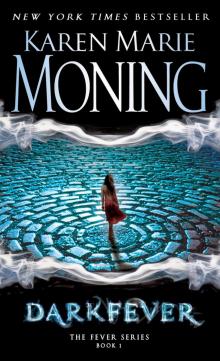 Darkfever
Darkfever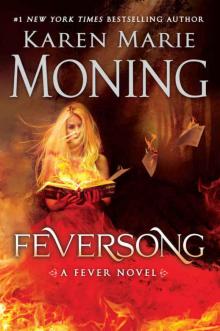 Feversong
Feversong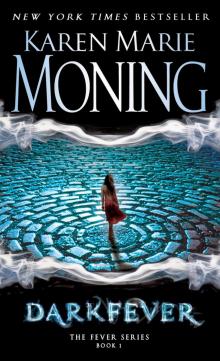 Faefever
Faefever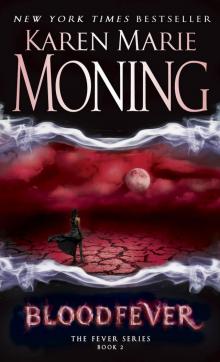 Bloodfever
Bloodfever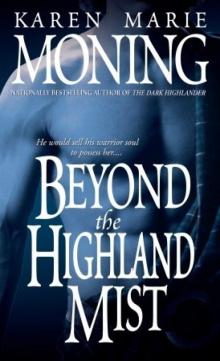 Beyond the Highland Mist
Beyond the Highland Mist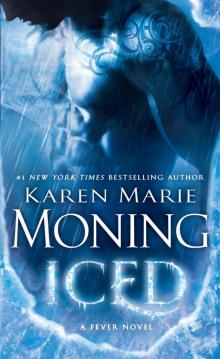 Iced
Iced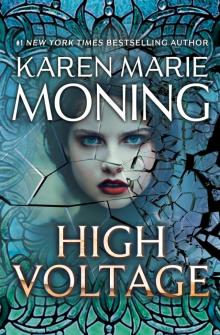 High Voltage
High Voltage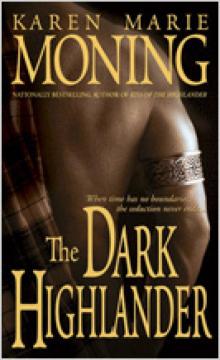 The Dark Highlander
The Dark Highlander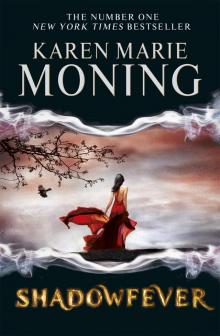 Shadowfever
Shadowfever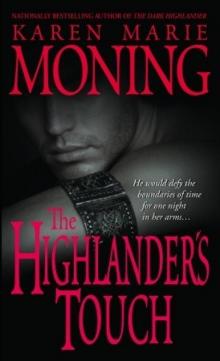 The Highlander's Touch
The Highlander's Touch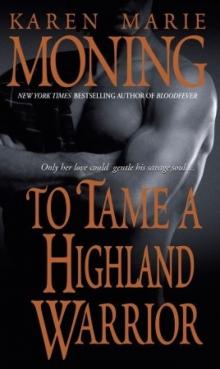 To Tame a Highland Warrior
To Tame a Highland Warrior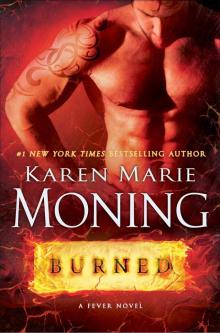 Burned
Burned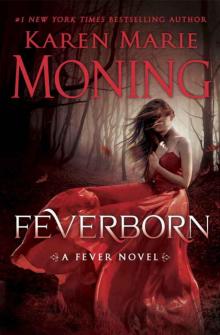 Feverborn
Feverborn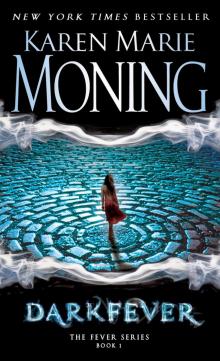 Dreamfever
Dreamfever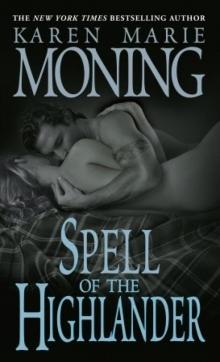 Spell of the Highlander
Spell of the Highlander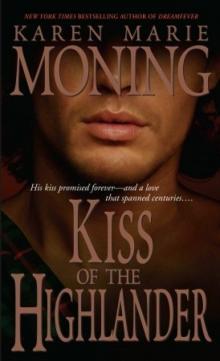 Kiss of the Highlander
Kiss of the Highlander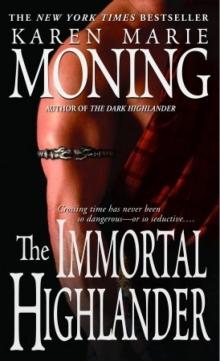 The Immortal Highlander
The Immortal Highlander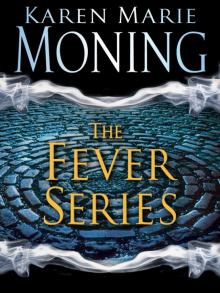 Karen Marie Moning’s Fever Series 5-Book Bundle: Darkfever, Bloodfever, Faefever, Dreamfever, Shadowfever
Karen Marie Moning’s Fever Series 5-Book Bundle: Darkfever, Bloodfever, Faefever, Dreamfever, Shadowfever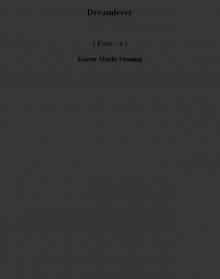 Dreamfever f-4
Dreamfever f-4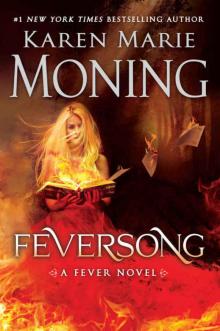 Feversong: A Fever Novel
Feversong: A Fever Novel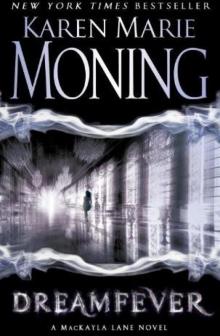 Dreamfever_The Fever Series
Dreamfever_The Fever Series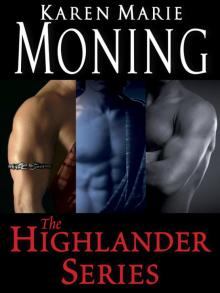 The Highlander Series 7-Book Bundle
The Highlander Series 7-Book Bundle![[Highlander 04] - Kiss of the Highlander Read online](http://i1.bookreadfree.com/i1/03/29/highlander_04_-_kiss_of_the_highlander_preview.jpg) [Highlander 04] - Kiss of the Highlander
[Highlander 04] - Kiss of the Highlander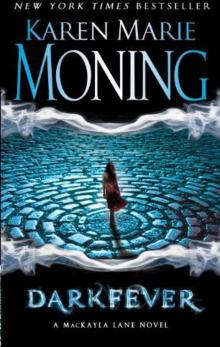 Darkfever_The Fever Series
Darkfever_The Fever Series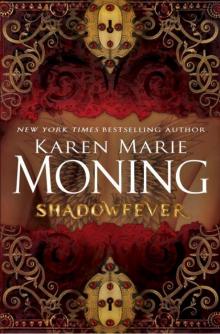 Shadowfever_Fever
Shadowfever_Fever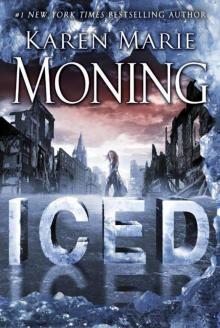 Iced: A Dani O'Malley Novel (Fever Series)
Iced: A Dani O'Malley Novel (Fever Series)![Fever [08] Feverborn Read online](http://i1.bookreadfree.com/i2/04/09/fever_08_feverborn_preview.jpg) Fever [08] Feverborn
Fever [08] Feverborn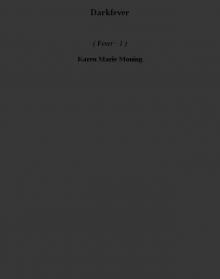 Darkfever f-1
Darkfever f-1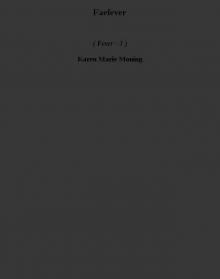 Faefever f-3
Faefever f-3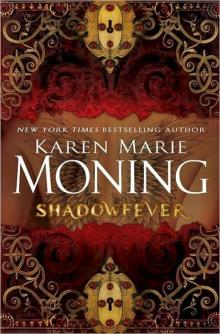 Shadowfever f-5
Shadowfever f-5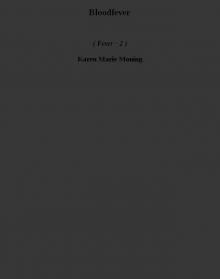 Bloodfever f-2
Bloodfever f-2